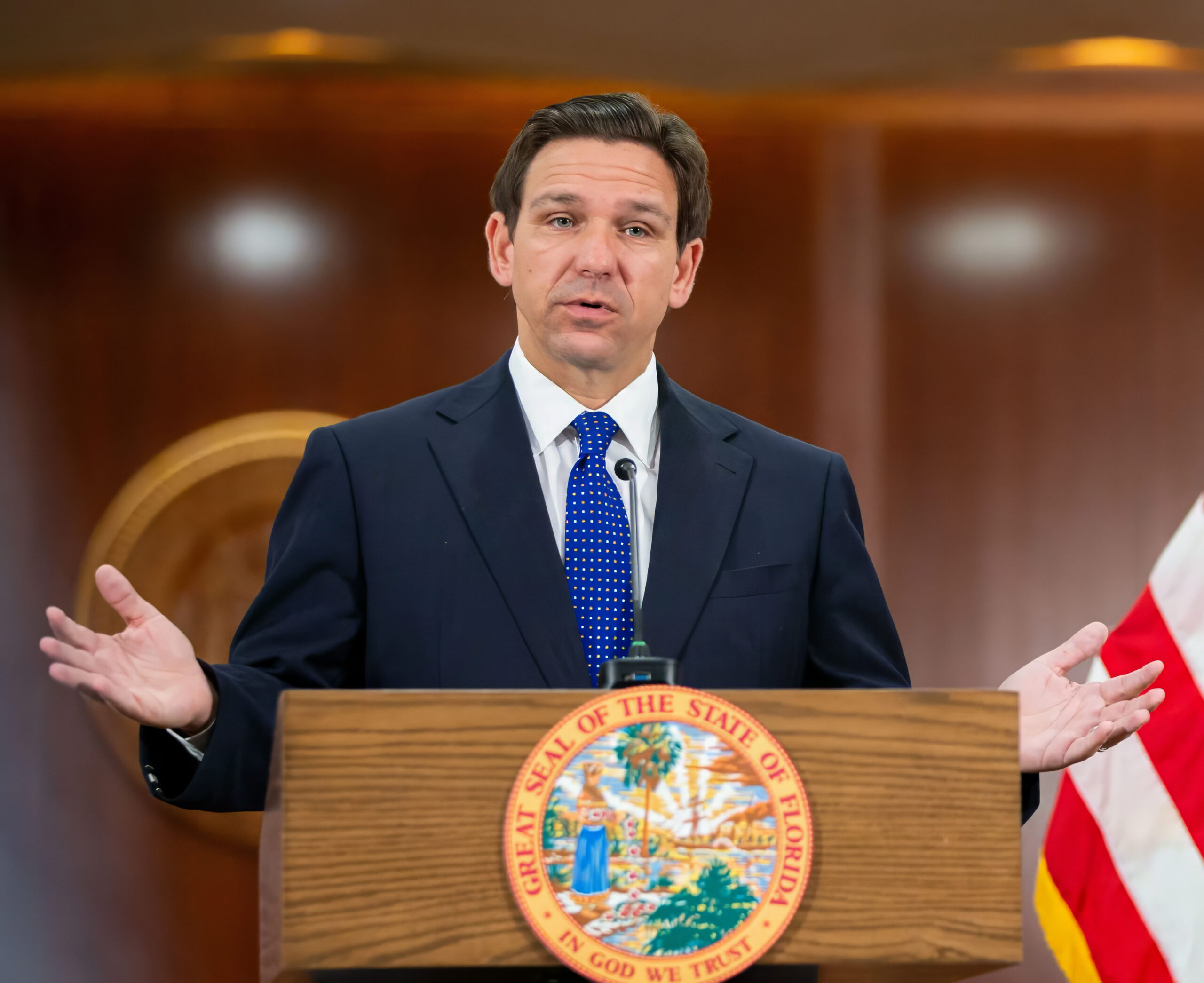A social media showdown is unfolding in Florida, as a federal judge in Tallahassee considers whether to block a new Florida law championed by Gov. Ron DeSantis that bans social media for young teens.
U.S. District Judge Mark Walker is expected to hear oral arguments Friday in his courtroom from lawyers representing technology companies and the state’s Attorney General. The sides are battling over a request for a preliminary injunction that would further block the new law from taking effect. It wasn’t clear when he might rule.
Walker was appointed by then-President Barack Obama in 2012 and has often ruled against the DeSantis administration, although at times those decisions have been overturned by higher courts.
The social media law, which was supposed to take effect Jan. 1, would block anyone under 16 from using some social media but would allow 14- and 15-year-olds to use the online services with a parent’s permission. Companies that violate the law could be fined up to $50,000 per violation.
Friday’s hearing in the U.S. District Court for the Northern District of Florida will focus narrowly on the request by tech companies to temporarily block the law, at least until a broader decision whether the law is constitutional.
Although the law is intended to keep young teens off social media, it also necessarily could require that adult users of some of the most popular platforms prove their age. There are few generally agreed-upon, full-proof methods for age verification on the internet.
“The state cannot begin to show that its draconian access restrictions are necessary to advance any legitimate interest it may assert,” the tech companies’ lawsuit said. “Parents already have a wealth of tools at their disposal to limit what online services their minor children use, what they can do on those services, and how often they can use them.”
Florida officials fired back in a court motion, saying the law was narrowly tailored only to affect social media companies that don’t use features that are addictive, such as scrolling videos or other content infinitely or algorithms that serve videos based on users’ perceived interests.
“It leaves platforms free to present content to children and adults through non-addictive means and free to present material to children who do not hold accounts,” the state’s response said.
Sen. Erin Grall, a Fort Pierce Republican, said those features were especially dangerous: “These platforms are intentionally designed to keep children engaged for excessive amounts of time, in an effort to monetize their behavior to their own detriment,” she said when the bill passed last year.
Rep. Daryl Campbell, a Fort Lauderdale Democrat, is one of four people in the House who voted against the law. He works as a mental health therapist and said he was concerned about the lack of effectiveness in the effort.
“I feel awkward as a mental health therapist voting against this bill…. This doesn’t tackle that issue, it just says that we did something without any enforcement behind it. That’s not what I’m about.”
A social media ban for minors isn’t a solution, he said, citing First Amendment constitutional issues and ways that savvy teens can use technology to obfuscate where they live.
Teens use social media as a way to connect with friends, and it may be the only way kids can connect with peers if they’re immunocompromised or are a part of the LGBTQ+ community or live in a non-accepting environment, said Rep. Anna Eskamani, an Orlando Democrat who also voted against the bill.
“Setting restrictions on how long a minor should be on an app, companies can do that right now,” Eskamani said. “Parents can do that right now, too.”
One wrinkle that hasn’t been ironed out: Exactly which social media apps are covered under the ban? The law doesn’t name any particular company’s products but says it applies only to social media platforms with 10% or more of daily active users who are younger than 16 and who spend an average of two hours or more on the service. Both conditions must be met, or the law doesn’t apply to that social media provider.
The law was a priority last year for DeSantis and the GOP-led House and Senate. DeSantis vetoed an early version of the proposal after a dispute with lawmakers about whether to give parents the choice for 14- and 15-year-olds.
In the face of legal questions after DeSantis signed the law, then-Attorney General Ashley Moody paused enforcing the ban until the outcome of the federal case in Tallahassee.
Since then, DeSantis selected Moody to fill a vacant seat in the U.S. Senate and replaced her with James Uthmeier, the Governor’s former top lawyer and Chief of Staff. The law puts the Attorney General’s Department of Legal Affairs and Florida’s elected state prosecutors in charge of enforcing its provisions.
___
This story was produced by Fresh Take Florida, a news service of the University of Florida College of Journalism and Communications. The reporter can be reached at [email protected]. You can donate to support our students here.
Post Views: 0

 Entertainment8 years ago
Entertainment8 years ago
 Entertainment8 years ago
Entertainment8 years ago
 Politics8 years ago
Politics8 years ago
 Tech8 years ago
Tech8 years ago
 Tech8 years ago
Tech8 years ago
 Tech8 years ago
Tech8 years ago
 Entertainment8 years ago
Entertainment8 years ago
 Politics8 years ago
Politics8 years ago










